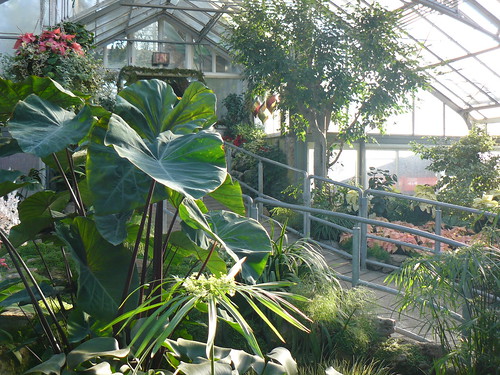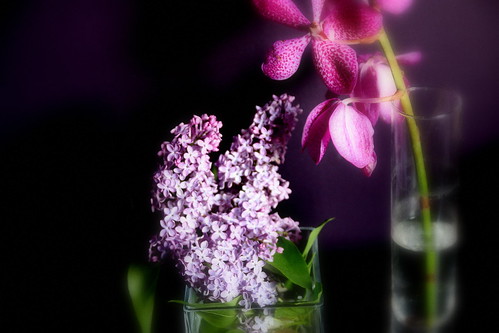Japanese Agarwood - Review + Giveaway

Allan Gardens: Tropical Paradise in the Middle of the Winter, originally uploaded by Canadian Pacific.
Japanese aesthetic is generally simple, elegant and clean (including some of the woods grown in Japan and used for incense as well – such as the watery hinoki and the dry hiba wood, not to mention the medicinal, clear borneol or camphor used in incense and body powders).
But when it comes to agarwood, the Japanese admire the dark and sometimes dirty and animalic agarwood. Agarwood incense is called jin-koh, and is the most prized over any other woods and is used in the koh-doh ceremony (translates to “the way of incense”). In particular – a variety of agarwood called kyara, which produces the darkest, most resinous, sweet and smoldering smoke, which seems to penetrate to the deepest parts of the soul and is so powerful it instantly brings the mind into a harmonious and meditative state.
Expect none of these effects from Japanese Agarwood oil roll-on. This interpretation of agarwood takes it all the way to the “clean wood” territory, leaving very little resemblence to agarwood of any kind. It is true that some agarwoods do have a clean smell, but they also always have something musty and complex about them, perhaps like a little mold attached to the continually moist bathing space.
Lisa Hoffman’s evening variation of the Japanese Agarwood scent is the most distinct of the four, but still, like I said, very transparent, pale and more watery than woody, with a somewhat tea-like, clean-musk dry down. According to the ad copy, “Japanese Agarwood was inspired by the lush, natural oils from the rainforest with subtle hints of Italian Bergamot, Spiced Ginger Accord, and Warm Amber. Within this complex, one also discovers mysterious earth nuances that are a delight to explore”.
It reminds me more of a greenhouse than a true rainforest; like the part of the nursery where they sell the tropical plants, and you can smell the water, fertilizers and moist compost and moss. There is nothing warm and ambery about it either. It’s a minimalist, clean, simple, aquatic woody, bordering on the sporty and definitely unisex if not a little on the masculine side when it dries down. The daytime version is even lighter, but perhaps also a little spicier, with the ginger note more pronounced.
Giveaway: Post a comment anywhere on SmellyBlog throughout the week (till next Friday) and enter to win Japanese Agarwood duo in the new packaging (designed by Lisa Hoffman's daughter) with the day time and the evening variations on Japanese Agarwood. I have tried both scents a couple of times, but both bottles are still full.
Coming next on SmellyBlog: A series about Agarwood and Sandalwood, including articles and reviews of other agarwood scents.




